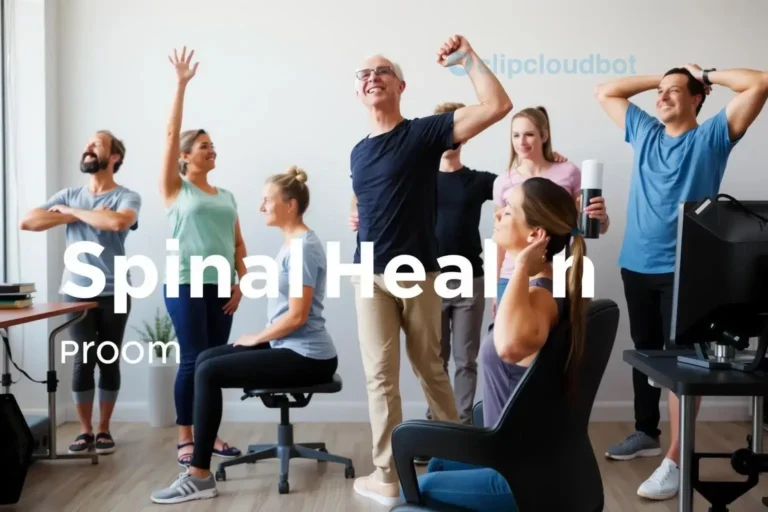Flow State and Enhanced Productivity
Unlocking peak productivity hinges on harnessing the power of flow state. This state of deep immersion and focused attention allows for effortless execution and heightened creativity. By understanding the principles behind flow, we can optimize our work habits and achieve significantly greater output. This involves cultivating an environment conducive to focus, managing distractions, and aligning tasks with our intrinsic motivations.
Understanding Flow State
Flow state, often described as being “in the zone,” is a state of heightened focus and complete absorption in an activity. It’s characterized by a sense of effortless control, a distortion of time perception (where hours can feel like minutes), and a deep sense of intrinsic reward. Understanding the underlying mechanisms of flow is crucial to intentionally cultivating this highly productive state.
Several key components contribute to entering a flow state. One critical factor is a balance between the challenge of the task at hand and the individual’s skill level. If the task is too easy, boredom sets in; too difficult, and anxiety takes over. The “sweet spot” for flow lies where the challenge stretches your abilities without overwhelming them. This balance creates a sense of energized focus, pushing you to the edge of your capabilities while maintaining a sense of control;
Clear goals are also essential. Knowing precisely what needs to be accomplished provides direction and purpose, allowing you to fully invest your attention in the task. Without a clear objective, it’s difficult to achieve the single-pointed focus necessary for flow. Ambiguity breeds distraction, while clarity fosters concentration.
Immediate feedback is another crucial element. Receiving real-time information about your progress allows you to adjust your approach and maintain the delicate balance between challenge and skill. This feedback loop reinforces positive actions and helps you refine your strategies, further deepening your immersion in the activity.
Finally, a sense of control is paramount. While in a flow state, you feel fully in command of your actions and the situation. This sense of autonomy and mastery minimizes distractions and allows you to fully dedicate your cognitive resources to the task at hand, leading to increased productivity and a profound sense of satisfaction.
Brain Hacking for Peak Mental Performance
Optimizing cognitive function, often referred to as “brain hacking,” involves strategically employing techniques to enhance focus, memory, and overall mental performance. These techniques can range from lifestyle adjustments to targeted interventions designed to boost specific brain functions. The goal is to unlock your brain’s full potential and achieve peak mental performance.
One powerful brain hacking technique is mindfulness meditation. Regular meditation practice has been shown to improve attention span, reduce stress, and enhance emotional regulation. By cultivating a state of present moment awareness, you can train your mind to resist distractions and maintain focus on the task at hand. This increased focus translates directly into improved productivity and cognitive performance.
Another effective strategy is optimizing sleep. Adequate sleep is crucial for consolidating memories, restoring cognitive function, and regulating mood. Establishing a consistent sleep schedule, creating a relaxing bedtime routine, and ensuring a dark, quiet sleep environment can significantly improve sleep quality and, consequently, boost mental performance.
Nutrition also plays a critical role in brain health. Consuming a balanced diet rich in fruits, vegetables, and healthy fats provides the essential nutrients necessary for optimal brain function. Limiting processed foods, sugary drinks, and excessive caffeine can further enhance cognitive performance and promote long-term brain health.
Targeted supplementation can also be beneficial. Certain nootropics, or cognitive enhancers, have shown promise in improving memory, focus, and overall cognitive function. However, it’s essential to research thoroughly and consult with a healthcare professional before incorporating any supplements into your routine.
Finally, regular exercise is a cornerstone of brain health. Physical activity increases blood flow to the brain, promotes neurogenesis (the growth of new brain cells), and enhances cognitive function. Incorporating regular exercise into your routine can significantly boost mental clarity, focus, and overall cognitive performance.
Practical Strategies for Deep Work and Cognitive Flow
Cultivating a state of deep work, characterized by intense focus and uninterrupted concentration, is essential for maximizing productivity and achieving cognitive flow. Implementing practical strategies to minimize distractions and create an environment conducive to deep work can significantly enhance your ability to enter and maintain this highly productive state.
One effective strategy is time blocking. Scheduling dedicated blocks of time for focused work allows you to prioritize important tasks and minimize interruptions. Clearly defining these periods and communicating your availability to others helps create boundaries and protects your focus.
Minimizing distractions is crucial. Turning off notifications, silencing your phone, and closing unnecessary tabs or applications can significantly reduce interruptions and enhance concentration. Creating a dedicated workspace free from distractions further reinforces your commitment to deep work.
The Pomodoro Technique can be a valuable tool for maintaining focus. This technique involves working in focused bursts of 25 minutes followed by a short 5-minute break. After four Pomodoro cycles, take a longer break of 20-30 minutes. This structured approach helps maintain concentration and prevents burnout.
Ritualizing your work process can also be beneficial. Establishing a consistent pre-work routine can signal to your brain that it’s time to focus and enter a state of deep work. This routine could include activities like meditation, journaling, or reviewing your goals for the day.
Taking regular breaks is essential for sustaining deep work. Stepping away from your work periodically allows your mind to rest and recharge, preventing mental fatigue and maintaining focus. Short breaks can involve activities like stretching, walking, or simply closing your eyes for a few minutes.
Finally, reflecting on your work process and identifying areas for improvement is crucial for continuous optimization. Regularly evaluating your strategies and making adjustments as needed ensures that you’re consistently refining your approach to deep work and maximizing your productivity.
Neuro-Optimization and Focus Enhancement Techniques
Neuro-optimization encompasses a range of strategies designed to enhance brain function and optimize cognitive performance. These techniques leverage principles of neuroscience to improve focus, memory, and overall mental clarity. Implementing these strategies can unlock your brain’s full potential and enhance your ability to achieve flow state.
One powerful neuro-optimization technique is neurofeedback; This technique involves monitoring brainwave activity in real-time and providing feedback to the individual. By learning to regulate their brainwave patterns, individuals can improve focus, reduce anxiety, and enhance cognitive performance. Neurofeedback offers a personalized approach to optimizing brain function.
Transcranial direct current stimulation (tDCS) is another emerging technique. tDCS involves applying a weak electrical current to specific areas of the brain to modulate neuronal activity. Research suggests that tDCS can enhance focus, improve learning, and even accelerate recovery from brain injuries. However, further research is needed to fully understand its long-term effects and optimal application.
Biofeedback techniques can also be beneficial. Biofeedback involves monitoring physiological signals like heart rate variability (HRV) and skin conductance to provide feedback on the individual’s stress levels and emotional state. By learning to regulate these physiological responses, individuals can improve their ability to manage stress and maintain focus.
Specific brain training exercises can also enhance cognitive function. Dual N-Back training, for example, has been shown to improve working memory capacity, a key component of focus and cognitive performance. Regularly engaging in these exercises can strengthen cognitive abilities and enhance overall mental acuity.
Mindfulness-based interventions, such as meditation and yoga, can also promote neuro-optimization. These practices have been shown to improve attention, reduce stress, and enhance emotional regulation, all of which contribute to improved focus and cognitive function.
Finally, maintaining a healthy lifestyle, including adequate sleep, proper nutrition, and regular exercise, is essential for optimal brain health and cognitive function. These foundational practices provide the necessary building blocks for effective neuro-optimization and focus enhancement.





